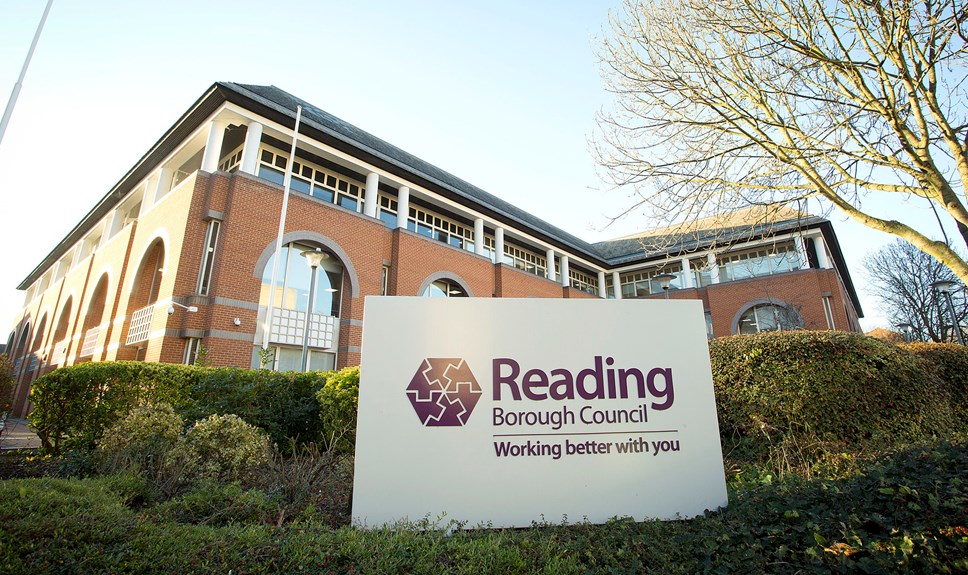
Council Priorities Outlined in New Tackling Inequality Strategy
- Closing the 'opportunity gap' between communities remains a key priority for the Council
- Plan is outlined in a new Tackling Inequality Strategy, with two pilots running in south Reading in year one
THE Council’s plan to create more opportunities for all communities across Reading by driving achievement in skills, education and training is outlined in a new Tackling Inequality Strategy.
Reading is well-established as an economic powerhouse both regionally and nationally, but there is a mismatch between the town’s success and the benefit to some of its local communities.
Reading can be an unequal area in terms of wealth and life experiences, and closing the ‘opportunity gap' between the most affluent and most deprived areas remains the key priority for the Council, underpinning all of its work.
The Council’s new Tackling Inequality Strategy 2023-26 will adopt a place-based approach to improving people’s life chances. This means the Council spending time understanding the strengths of each community and where activities, supported by partners, should be targeted to create more opportunities and make a real difference to people’s lives.
Two priorities are identified for year one of the strategy:
- South Reading Area pilots: Establish two pilots in south Reading in Whitley and Church wards focusing activities and resources where they are most needed, building on existing local resources offered by schools, churches, open spaces, community centres, the leisure centre and local retailers
- Raising attainment and improving life chances: Working with Brighter Futures for Children to develop a targeted programme of work to support schools within south Reading to improve outcomes for pupils
The strategy also outlines how critical partnership working is in tackling inequality. To help residents to realise their potential requires the Council work closely with key partners such as Brighter Futures for Children, New Directions College and the Reading Economy & Destination Agency, along with local schools, colleges and businesses. The local economy needs to remain strong so that there are the good job prospects and so that small businesses and the self-employed can be sustained.
Partnership working can also mean investing in the activity of partners to create more capacity to support residents. The Council is already doing this by commissioning services from the voluntary and community sector within its 'Closing the Gap' programme, to provide a strong local voluntary and community sector infrastructure, enhance resilience, independence and wellbeing for residents, and to help people get out and stay out of poverty.
The Tackling Inequality Strategy 2023-26 brings together the Council’s work on tackling inequality into a single document and work programme. It is backed up by an action plan detailing specific actions for the Council and its partners.
It will be considered by a meeting of the Council’s Policy Committee on Monday January 23. The Policy Committee report can be found at https://democracy.reading.gov.uk/documents/s24776/Tackling%20Inequality%20Strategy%20report%20and%20appendices.pdf
Councillor Jason Brock, Reading Borough Council Leader, said:
“The focus of the Council, and what drives me personally, is helping Reading realise its potential through ensuring that everyone who lives and works here can share in the benefits of our town’s success.
“As well as bringing together existing activity, the new Tacking Inequality Strategy is about how we can go beyond what we are already doing to achieve a better quality of life for our residents in our most deprived areas. That means creating opportunities to access the education, skills and practical training people need to realise their potential through suitable employment opportunities.
“Unfortunately there isn’t a one-size fits all solution to tackling inequality. We know that some of the positive impacts in the action plan will be delivered quicker than others. We also need to be realistic, especially with our resources being limited, which is why we are initially focusing our activities on specific issues and areas of Reading that make a real difference for our residents, especially in the south of the borough.
“Our partners have a huge role to play in helping to deliver the changes which make a difference to people’s lives, through the support and resources they provide to residents. For its part the Council will do everything in its power to back them, as we already do through our ongoing financial package of support to our amazing voluntary sector.”
Liz Terry, Reading’s Lead Councillor for Corporate Services and Resources, said:
“Sadly, one impact of an ongoing cost of living crisis is that the opportunity gap between affluent and those that are struggling to make ends meet and face barriers to overcome, will almost certainly widen. The Council, together with its partners, is determined to do all it can to stem the tide.
“Our focus on trying to help everybody in Reading realise their potential pre-dates the current crisis by a number of years, but this strategy now pulls together the various workstreams across the town into one document with clear actions and outcomes.
“Education and training has always been a fundamental tool to help people to improve their life chances. Year one of the strategy will focus on the south of the borough, understanding what communities already do well and what the barriers are to progress, using existing resources to deliver activities and to create new opportunities for residents.
“As always, we will rely on the skills, experience and expertise of our partners, as this is not something the Council can achieve on its own.”
Reading Borough Council’s existing vision, as outlined in its Corporate Plan 2022-25, is ‘to help Reading realise its potential and to ensure that everyone who lives and works here can share in the benefits of its success’ https://democracy.reading.gov.uk/documents/s21859/CorporatePlan-2022-25.pdf
